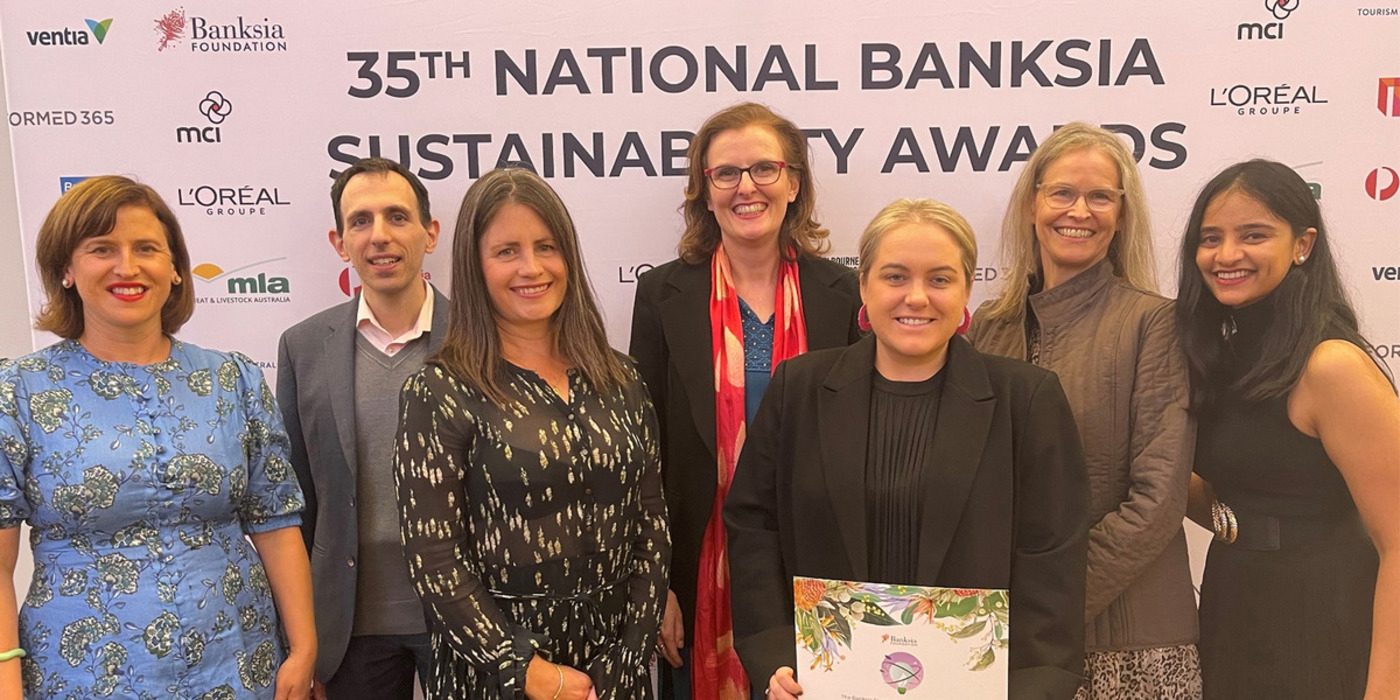A world-first app developed by The George Institute for Global Health to assign packaged food products a ‘Planetary Health Rating’ has been recognised as a finalist in ‘Climate Technology Impact’ at the 35th National Banksia Sustainability Awards.
‘ecoSwitch’ launched in 2023 and allows shoppers to scan and compare the greenhouse gas emissions of more than 60,000 packaged foods sold in Australia. The Australian innovation is the first app to rate tens of thousands of foods using a standardised approach, so consumers can identify foods with the lowest environmental impact from the large selection on supermarket shelves.1
The global food system generates an estimated 30-40 per cent of the world’s total greenhouse gas emissions (including agriculture, production and transport).2
Professor Simone Pettigrew, Program Director, Food Policy at The George Institute for Global Health, said, “We’re incredibly proud of ecoSwitch, which gives consumers the information they need to make climate-conscious choices to reduce the impact of our food system on the climate.
“We congratulate all of this year’s winners and thank the Banksia Foundation for our nomination, which recognises the determination of our experts in nutrition, food regulation, mathematics and analytics, who collaborated to build a system that’s simple to use, yet based on a robust and highly standardised approach,” she said.
How ecoSwitch works
ecoSwitch calculates a product’s greenhouse gas emissions based on its specific ingredients, weight, production life cycle, country of origin and level of processing. This information is then presented in the form of a Planetary Health Rating, which ranges from half a star (worst) to five stars (best). This is like the approach Australians are already familiar with from the Health Star Rating.
As well as greenhouse gas emissions, developments are in progress to extend the ecoSwitch algorithm to integrate other environmental indicators such as land use, water use, and biodiversity.
The George Institute’s goal is to develop a single, standardised sustainability rating system to bring transparency to the environmental impact of packaged foods around the world.
“The urgency to transform our food system could not be clearer – human health depends on a healthy environment, which is under threat from climate change, biodiversity loss and environmental degradation,” Prof Pettigrew continued.
“Planetary health is therefore a critical area of future research for us, to support integrated climate, health, food and environmental policies.
“With ecoSwitch, we are putting power into the hands of consumers, as we have with our long-running FoodSwitch app for healthy food choices, to signal to industry and government that the community wants a more sustainable food supply.”
The ‘EcoSwitch’ app can be downloaded for free from Android and iOS.
References:
- Gains et al 2023. A novel approach to estimate product-specific greenhouse gas emissions for 23,550 Australian packaged foods and beverages; http://doi.org/10.1016/j.jclepro.2023.138816
- Xu, X., Sharma, P., Shu, S. et al. Global greenhouse gas emissions from animal-based foods are twice those of plant-based foods. Nat Food 2, 724–732 (2021). https://doi.org/10.1038/s43016-021-00358-x
- Ivanovich et al 2023. Future warming from global food consumption. Nat. Clim. Chang. 13, 297–302 (2023). https://doi.org/10.1038/s41558-023-01605-8




